The Swedish University of Agricultural Sciences (SLU) is a Swedish institution of higher education and research focusing on agriculture, forestry, environmental sciences and veterinary medicine. It enjoys an international reputation in these fields and is committed to promoting sustainable development through education and research. Here are some key information about SLU:
Overview
Founded: 1977 (as a comprehensive agricultural science university)
Institutional nature: public
Main campus location:
The main campus is located in Uppsala, and there are also several research stations and teaching sites distributed throughout Sweden, such as Alnarp, Skara, Sveriges Lantbruksuniversitet, etc.
History
SLU's history can be traced back to the late 18th century, when several independent agricultural colleges and technical schools were established.
In 1977, these institutions merged to form the Swedish University of Agricultural Sciences (SLU), and gradually developed into a comprehensive agricultural science research and education center.
In its development history, SLU has continuously expanded its subject range and established several research centers.
School Strength
SLU has about 10,000 students (including undergraduates, graduate students and doctoral students) and about 3,500 faculty and staff.
It offers a wide range of undergraduate, master's and doctoral courses covering multiple disciplines.
It enjoys an international reputation in the fields of agricultural science, forestry, environmental science, veterinary medicine, etc.
The school's research results have an important influence internationally, especially in sustainable agriculture, biodiversity conservation, forest resource management, etc.
Educational philosophy
Emphasis on the combination of theory and practice, encouraging students to develop skills through practical projects and service learning.
Focus on interdisciplinary cooperation, especially collaboration between different majors.
Attach importance to international education, recruit a large number of international students, and provide courses taught in multiple languages.
Committed to cultivating professionals with innovative spirit and social responsibility.
Disciplines
Bachelor's degrees:
Agricultural sciences
Forestry
Environmental sciences
Veterinary science
Biodiversity conservation
Soil science
Master's degrees:
Agricultural sciences
Forestry
Environmental sciences
Veterinary science
Ecosystem management
Food safety and quality
Sustainable agriculture and rural development
Master's programs in other related fields
PhD programs:
SLU offers doctoral programs in a number of agricultural sciences, environmental sciences, forestry and veterinary sciences, supporting in-depth research and innovation.
Featured projects
Interdisciplinary research centers: The school has a number of interdisciplinary research centers to promote cooperation and exchanges between different disciplines.
International cooperation projects: Actively participate in the EU's Erasmus+ project and other international exchange programs, providing students with opportunities to study abroad.
Entrepreneurship support: There is a dedicated entrepreneurship center to help students transform scientific research results into commercial applications.
Research facilities: SLU has advanced laboratories and research centers, such as the Horticultural Science Center on the Alnarp campus and the Forest Science Center in Umeå.
International cooperation
SLU has established partnerships with many top universities around the world and participates in many international research networks and alliances.
Provide exchange student programs to promote international perspectives and cultural exchanges among students.
As a member of multiple international organizations, SLU enjoys an important position worldwide.
Research Facilities and Resources
Alnarp Campus: Focuses on horticultural science, landscape architecture and urban greening.
Umeå Plant Science Centre: Conducts research in plant biology and molecular genetics.
Swedish Species Information Centre (ArtDatabanken): Collects and analyzes data on Swedish species and their habitats.
Experimental Forests and Fields: Experimental forests and farmlands throughout Sweden for long-term ecological research.
Veterinary Teaching Hospital: Veterinary Teaching Hospital in Uppsala, providing clinical training opportunities.
Costs
For EU/EEA students, SLU is usually free, but a small registration fee is required.
For non-EU/EEA international students, tuition fees vary depending on the major, and specific fees should be consulted directly with the school or visit its official website for the latest information.
In terms of living costs, the cost of living in Sweden is relatively high, but you still need to consider the costs of accommodation, food and personal expenses.
Application Requirements
Applicants usually need to have a high school diploma or equivalent, and may need to complete certain prerequisite courses.
For Master's programmes, a bachelor's degree in a relevant field is usually required.
You will need to demonstrate your interest in your chosen subject and your suitability for a career in this field by passing an entrance exam or interview.
The English language proficiency requirement is usually B2 level (according to the Common European Framework of Reference for Languages CEFR), although some programmes may require higher levels.
-

Linnaeus University
-
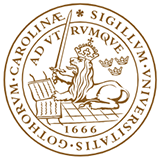
Lund University
-
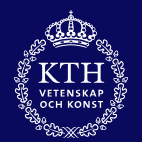
KTH Royal Institute of Technology
-
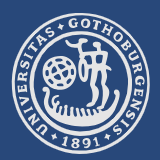
University of Gothenburg
-
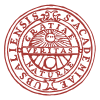
Uppsala University
-
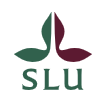
Swedish University of Agricultural Sciences
-

Halmstad University
-
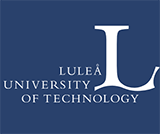
Luleå University of Technology
-
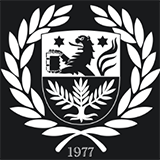
University of Skövde
-
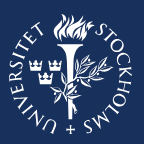
Stockholm University
-

Mesoamerican University
-

Istmo University
-

Mariano Galvez University of Guatemala
-

Regional University of Guatemala
-

Galileo University
-

Francisco Marroquín University
-

Rafael Landívar University
-

University of the Valley of Guatemala
-

University of San Carlos of Guatemala
-

Technological Institute of Tlaxcala Plateau
-

Golfo University
-

Technological University of South Sonora
-

Technological University of Huejotzingo
-

Tizimín Institute of Technology
-

Chilpancingo Institute of Technology
